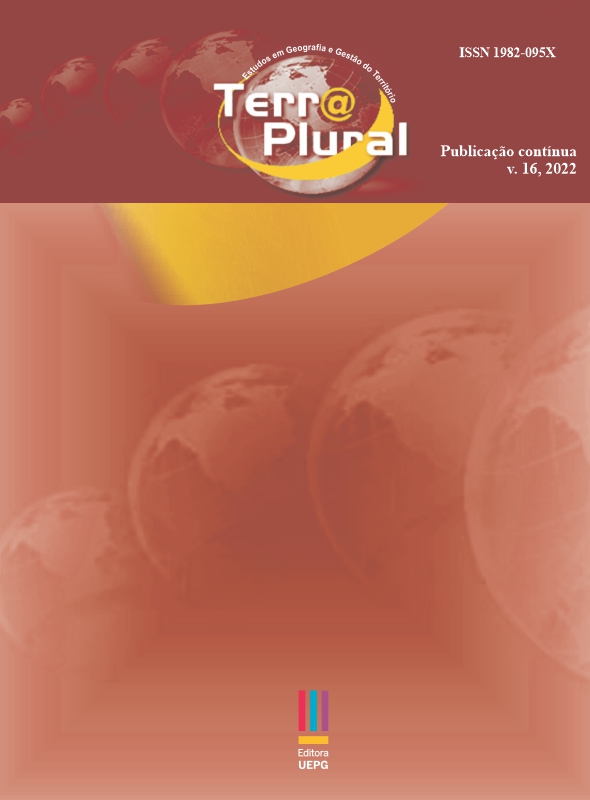Fossil Invertebrate Taphonomy of the Devonian in the state of Paraná:
Contributions to the Studies on Hydrocarbon Potential Linked to the Folhelho Project (LAGESED-UFRJ)
DOI:
https://doi.org/10.5212/TerraPlural.v.16.2221225.046Keywords:
Paleontologia Estratigráfica, Shale gas, Bacia do Paraná, Formação Ponta Grossa.Abstract
Shales constitute a recent frontier of studies in Sedimentary Geology, stimulated by the new
exploratory panorama of Shale Gas, despite being the sealant of many petroleum systems. However,
in Brazil, the generation of natural gas associated with paleontological studies is unprecedented and
fundamental for determining the real regional potentialities in a process of advancing scientific and
technological knowledge. Taphonomic studies of fossil macrofauna and ichnology are integrated with
sedimentological data, expanding the capacity for paleoenvironmental interpretation of the sedimentary
facies. Samples from three distinct outcrops in the Campos Gerais region of the state of Paraná were
analyzed and two tafofauna and three ichnofauna were identified: Skolithos, archetypical and distal
Cruziana. The paleontological analyses proposed here provide support for biostratigraphic correlations,
paleoenvironmental and paleoecological interpretations of the outcrops prospected, assisting in the
evaluation of the quality of the shales of the Ponta Grossa Formation from the point of view of hydrocarbon generation.
Downloads
Downloads
Published
How to Cite
Issue
Section
License
Copyright (c) 2023 Gabrieli Goltz, Elvio Pinto Bosetti, Lucinei José Myszynski Junior, Leonardo Borghi

This work is licensed under a Creative Commons Attribution-NonCommercial-NoDerivatives 4.0 International License.
Revista Terr@ Plural will obtain the auctorial rights for all published texts. This also implies that the text can be published anywhere in the world, including all rights on renewal, expansion, and dissemination of the contribution, as well as other subsidiary rights. The authors get permission to publish the contribution in other media, printed or digital, it may be in Portuguese or translation since the publication is credited to Revista Terr@ Plural. It allows the self-archiving of published articles in institutional repositories, thematic repositories, or personal web pages in the pdf version downloaded from the journal's site.















